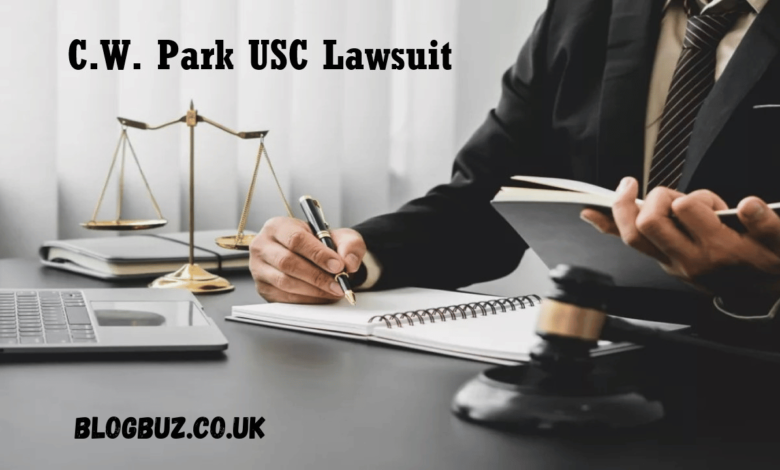The C.W. Park USC Lawsuit: Unveiling the Controversy

The C.W. Park USC lawsuit has become a pivotal case in the discourse surrounding sexual harassment, discrimination, and institutional accountability within higher education. This article delves into the details of the accusations, the court case, and the wider academic ramifications.
Who is C.W. Park?
Choong Whan Park, commonly known as C.W. Park, is a former Marshall School of Business lecturer at the University of Southern California, or USC. He was a respected figure in academia, known for his contributions to marketing and his role as the director of USC’s Global Branding Center. Park retired at the end of the 2021 semester, but severe allegations of sexual harassment and assault have overshadowed his legacy.
Background of the Lawsuit
The lawsuit against C.W. Park was initiated by Yi Youn Kim, a former student assistant who worked under Park from 2016 to 2019. Kim alleges that Park sexually assaulted her on multiple occasions during this period. She claims that Park exploited his position of authority to make non-consensual advances, which included inappropriate touching and coercion into sexual acts. Following Kim’s allegations, other female Korean students came forward with similar claims, indicating a potential pattern of predatory behavior.
Allegations Against USC
The lawsuit also implicates USC, accusing the university of failing to protect students and adequately address the misconduct. It suggests that USC was aware of Park’s behavior but did not take sufficient action to prevent further incidents. This aspect of the lawsuit highlights broader issues of institutional negligence and the challenges universities face in handling sexual harassment cases.
Specific Allegations
- Sexual Harassment and Assault: Park is accused of making unwanted sexual advances towards female students, including explicit messages, inappropriate touching, and coercion into sexual acts.
- Discrimination: The lawsuit claims that USC discriminated against Kim and other female students by failing to address their complaints effectively.
- Retaliation: Kim alleges that after she filed complaints, she faced increased scrutiny and retribution, ultimately impacting her academic and professional opportunities.
Broader Impact on Higher Education
The C.W. Park USC lawsuit has broader implications for higher education institutions, particularly regarding how they handle allegations of sexual harassment and discrimination. It underscores the need for robust policies and procedures to protect students and faculty and ensure a safe and respectful academic environment.
Academic Freedom and Faculty Rights
One key issue this case highlighted is balancing academic freedom and faculty rights. While professors should have the autonomy to explore diverse topics and engage in open discourse, ensuring this freedom does not come at the expense of students’ safety and well-being is crucial. The lawsuit raises important questions about the safeguards in place to protect students from potential abuses of power.
Legal Proceedings and Responses
Stakeholders within and outside USC have closely watched the legal proceedings of the C.W. Park lawsuit. The university has denied the allegations, stating that it has a zero-tolerance policy for sexual harassment and that it took appropriate actions to investigate and address the complaints. C.W. Park has also denied the accusations and has filed a countersuit for defamation, claiming that the relationship was consensual and that the allegations are a fabrication.
Key Developments
- Internal Investigation: Following Kim’s formal complaint, USC conducted an internal investigation, which uncovered additional harassment claims by Park from other students.
- Legal Actions: Park’s countersuit for defamation adds another layer of complexity to the case, as it challenges the credibility of the allegations and the motivations behind them.
- Public Reaction: The case has sparked significant public outrage, with protests and demands for greater accountability and transparency from USC’s leadership.
Challenges and Lessons for Higher Education
The C.W. Park USC lawsuit highlights several challenges that higher education institutions face in addressing sexual harassment and discrimination. These challenges include power dynamics, cultural norms, and victims’ barriers to reporting misconduct. The case underscores the need for universities to implement sensible safeguards to stop and address such incidents and create a supportive environment for victims.
Power Dynamics and Cultural Norms
The allegations against Park illustrate the power dynamics between faculty and students, particularly in mentor-mentee relationships. These dynamics can make it difficult for students to speak out against misconduct, especially when the perpetrator is a respected and influential figure. The lawsuit also highlights cultural factors, as many of the alleged victims were of Korean descent, which may have influenced their willingness to come forward.
Institutional Accountability
The lawsuit has spotlighted USC’s policies and procedures for handling sexual harassment complaints. It raises crucial questions about the effectiveness of these policies and the university’s commitment to establishing a fair and secure atmosphere for every member of its community. The case has prompted calls for greater transparency and accountability in how universities handle similar allegations in the future.
Looking Ahead
As the C.W. Park USC lawsuit unfolds, its impact on higher education will be closely monitored. The outcome could set important precedents for how academic institutions address allegations of sexual harassment and discrimination. It also emphasizes the need for ongoing dialogue and reform to ensure that universities uphold the highest standards of equity and justice.
Potential Outcomes
- Trial or Settlement: The lawsuit could go to trial, where a jury would decide on the liability of USC and C.W. Park and the damages to be awarded. Alternatively, the parties may settle out of court.
- Policy Reforms: Regardless of the outcome, the case will likely prompt policy reforms at USC and other universities to strengthen protections against sexual harassment and improve complaint-handling procedures.
- Impact on Reputation: The case has already affected USC’s reputation, and the outcome could have further implications for the university’s standing and ability to attract students and faculty.
Conclusion
The C.W. Park USC lawsuit is a significant case that highlights the critical issues of sexual harassment, discrimination, and institutional accountability within higher education. It underscores the importance of robust policies and procedures to protect students and faculty and ensure a safe and respectful academic environment. As the court matter moves forward, it will undoubtedly shape the future of how universities handle similar allegations and strive to create a more equitable and just educational landscape.
Read More: Natalia Malcevic Obituary: Celebrating a Life Cut Short




